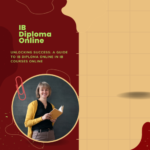Introduction:
Mastering International Baccalaureate (IB) Math requires a combination of understanding key concepts, practicing problem-solving techniques, and developing effective study habits. Whether you’re tackling Standard Level (SL) or Higher Level (HL) Math, enhancing your skills can make a significant difference in your performance. In this article, we’ll explore five quick tips to help you improve your IB Math skills and approach the subject with confidence.
- Understand the Fundamentals: The foundation of success in IB Math lies in a solid understanding of fundamental concepts. Before diving into complex topics, ensure you have a clear grasp of basic principles such as algebra, geometry, and trigonometry. These fundamentals serve as building blocks for more advanced concepts, and a strong foundation will make it easier to tackle challenging problems.Quick Tip: Create a concise summary of essential formulas and concepts, and regularly review them to reinforce your understanding. Focus on mastering the basics before moving on to more advanced topics.
- Practice Regularly with Varied Problems: Mathematics is a subject that improves with practice. Regularly solving problems from different categories, difficulty levels, and from various sources, including past papers, textbooks, and online resources, is essential. This not only reinforces your understanding of concepts but also exposes you to different ways problems can be presented.Quick Tip: Set aside dedicated time each day for problem-solving practice. Gradually increase the difficulty of problems as you become more comfortable with the basics. Track your progress and celebrate small victories along the way.
- Utilize Resources Effectively: Take advantage of the wealth of resources available for IB Math students. This includes textbooks, online tutorials, video lectures, and past papers. The official IB resources, such as the subject guide and assessment materials, are particularly valuable. Use them to supplement your class notes and gain a more comprehensive understanding of each topic.Quick Tip: Identify your weak areas and seek targeted resources to address them. Whether it’s watching instructional videos, consulting additional textbooks, or joining online forums for discussion, leveraging diverse resources enhances your learning experience.
- Seek Clarification and Collaboration: Don’t hesitate to seek clarification when you encounter challenging concepts. Your teachers, classmates, and online forums can provide valuable insights and explanations. Engaging in collaborative learning not only helps you understand different approaches to problem-solving but also allows you to share your knowledge with others.Quick Tip: Create a study group with classmates or join online forums where you can discuss and solve problems together. Explaining concepts to others is an excellent way to solidify your understanding and gain new perspectives.
- Time Management and Exam Techniques: Time management is crucial during exams, and practicing under timed conditions is essential. Familiarize yourself with the exam format, question types, and allocate your time wisely. Learn to identify the key components of a problem quickly and devise a strategy for solving it efficiently.Quick Tip: Practice past papers and sample exams under timed conditions. Develop a systematic approach to problem-solving, focusing on understanding the question, formulating a plan, and executing it efficiently. Time management is a skill that can significantly impact your overall performance.
Conclusion:
Improving your IB Math skills is an ongoing process that requires dedication, practice, and effective study strategies. By understanding the fundamentals, practicing regularly with varied problems, utilizing available resources, seeking clarification through collaboration, and honing time management and exam techniques, you can enhance your proficiency in IB Math. Remember, consistency is key, and small, regular efforts can lead to significant improvements over time. Approach the subject with curiosity, a willingness to learn, and the confidence that you can conquer the challenges that IB Math presents.



